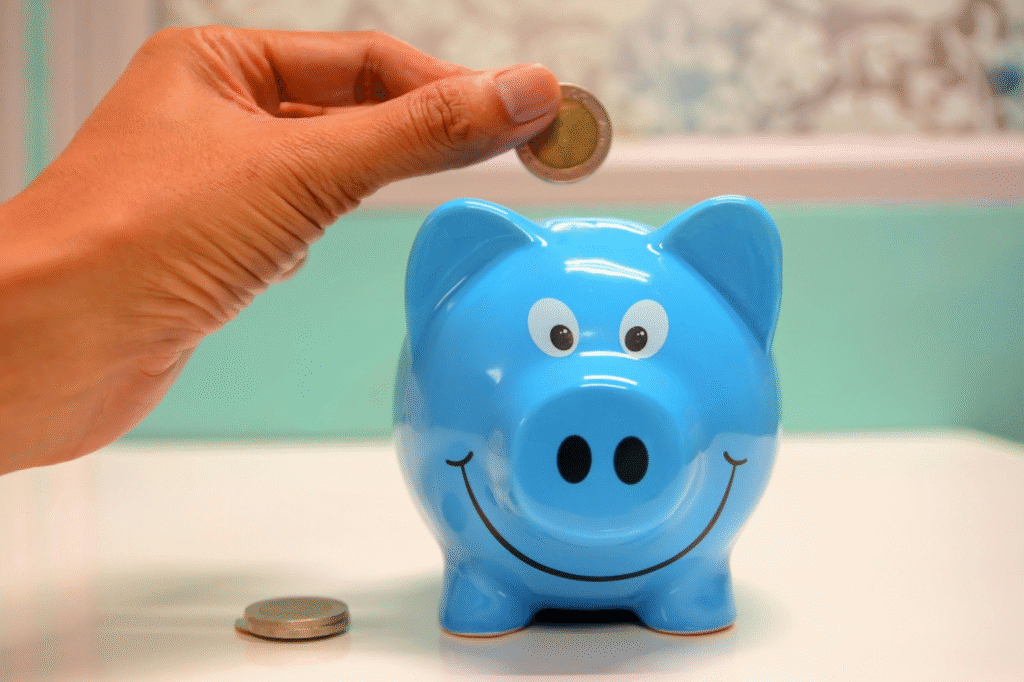When people talk about self-care, the images that usually come up are long baths, yoga classes, or taking a day off to recharge, and it’s true that those things can be massively helpful (and enjoyable!), but there could be more to it, and lately there’s a growing realisation that true self-care goes deeper. It’s really about removing stress at the roots, and for many people, money sits right at the core of it, and that’s why financial confidence is so important, and could be the best form of self-care you try.
The fact is that money touches almost every decision we make, from the food on the table to the roof over our heads, finances shape our choices, and when money feels unpredictable, life feels unstable. So maybe it’s time we see financial confidence not as a luxury, but as part of taking care of ourselves, and with that in mind, keep reading to find out more.
Why Finances Feel So Personal
Money isn’t just numbers in a bank account, because the reality is that childhood experiences, family habits, and social pressures are all tied up in it. When you think about it, you’ll see that some people grew up never talking about money, so now even opening a bill can spike anxiety, and others tie self-worth to financial success, so any setback feels personal.
When we say “self-care,” we often think about easing emotional burdens. Well, financial stress is one of the heaviest, and learning to handle money with more confidence doesn’t just balance budgets, it eases that constant tension sitting in the back of your mind.
The Link Between Confidence And Control
Confidence doesn’t mean having loads of cash, what it actually means knowing where you stand and having some control over what happens next. Self-care, at its heart, is about creating conditions where life feels less overwhelming, and of course, financial confidence fits nicely into that idea.
Small steps like building a budget, tracking expenses, and setting up an emergency fund, for example, give structure to what otherwise feels chaotic, and each step builds reassurance. In other words, the more you understand, the less money feels like something you can’t control.
Tools To Make It Easier
The good news is you don’t need to be a financial expert to feel confident, and tools make the process less intimidating. Apps for expense tracking, online banking dashboards, and even something as straightforward as a mortgage calculator give clarity where there was once uncertainty, which is brilliant because in the end, knowing how monthly payments might change before signing anything makes decision-making calmer, and that calm is what self-care is all about.
Technology has taken a lot of the guesswork out of personal finance, and what used to be complicated spreadsheets can now be managed with a few taps on a phone.
Changing Your Mindset
Most of the time, self-care has been more reactive than anything else – you’re stressed, so you treat yourself to ease the feeling. Financial confidence, on the other hand, is proactive (and that’s a lot better).Basically, it prevents some of that stress from taking hold in the first place, and the difference between constantly worrying about bills and knowing you have a plan is night and day.
It also changes how people see themselves because instead of feeling like life happens to them, they start to see choices, and choices, even small ones, make you feel much more confident.
Breaking The Taboo Around Money
A big barrier to financial confidence is silence because many families don’t talk openly about money, which leaves people guessing, ashamed, or just totally misinformed. Bringing money into everyday conversations makes it less scary, and doing things like sharing tips with friends, teaching kids how to budget, or even just admitting struggles helps break the stigma.
Self-care thrives in community, and financial confidence is no different. We don’t need to figure it all out alone, and the more normal it becomes to talk about money, the easier it is to ask questions, learn, and grow.
Long-Term Benefits
Financial confidence ripples outward, and with money stress under control, people sleep better, relationships improve, and health outcomes even get better. It’s not just about avoiding late fees or debt – it’s about having the headspace to focus on what really matters.
For parents, that might mean feeling secure enough to plan for a child’s education, for example, and for individuals, it might be finally saving for travel, or just knowing the rent will always be covered. Whatever the goal, the confidence comes from building stability.
And unlike a quick self-care treat, the benefits last – once financial systems are in place, they continue to support you day after day.
Think About The Emotions
It’s easy to think of finance as cold, logical, and detached, but anyone who’s ever felt relief at paying off a debt, or pride in hitting a savings target, knows money carries emotion. That’s why treating financial health as self-care makes sense because it acknowledges that money isn’t separate from our wellbeing, and it’s intertwined.
By connecting the two, people give themselves permission to see budgeting or saving not as boring chores, but as acts of self-respect, and each payment toward debt, and each contribution to savings, is a way of looking after future you.
Practical Steps For Everyday Life
Start Small: Choose one thing, maybe tracking expenses for a week, and build from there.
Automate Where Possible: Direct debits or automatic transfers remove decision fatigue.
Set Goals That Matter: Whether it’s clearing credit cards or saving for a family holiday, personal goals make the process meaningful.
Check In Regularly: A five-minute review once a week keeps things on track and prevents surprises.
Each step is simple, but the overall effect is really good and can help massively.
Final Thoughts
Financial confidence might not come with the same feeling as a spa day, but its impact much longer more lasting because it’s really self-care that reaches into every corner of life, reducing stress, opening possibilities, and creating stability.
If we start to think about self-care to include building financial systems that actually work, then we stop treating money as the enemy and start treating it as part of a healthier, calmer life, and that might be the most meaningful act of care we can give ourselves.







